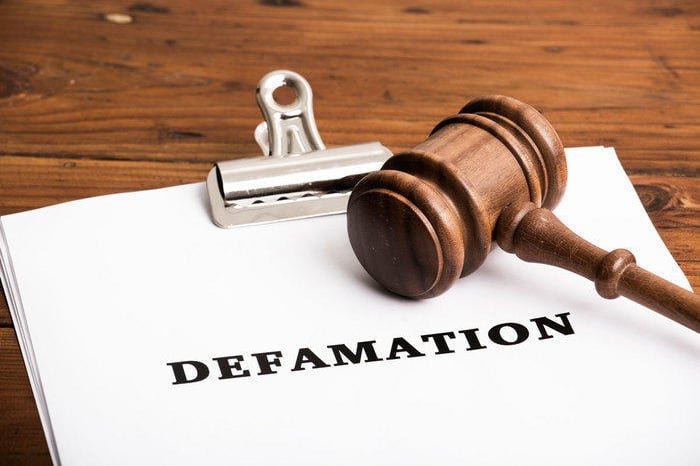AdVocate harshit Sachar | chamber no: 617 | district courts ludhiana | 2817 gurdev nagar ludhiana | ✆+91 7889228369
When is a Defamation Case Maintainable in India?
Understanding the essentials of civil and criminal defamation cases under Indian law.
CIVIL LAWSCRIMINAL LAW
Advocate Harshit Sachar Ludhiana
9/26/20252 min read


🏛️ Introduction
Defamation is one of the most common allegations in India today. From social media disputes to business rivalries, people often threaten or file defamation cases. However, not every statement or criticism qualifies as defamation. Indian courts carefully examine the circumstances before declaring a case maintainable.
🔹 What is Defamation?
Defamation means making or publishing a false statement that harms a person’s reputation in society.
In India, it can be pursued under:
Civil Law – Claiming damages (money compensation).
Criminal Law – Under Sections 499 & 500 IPC, punishable with imprisonment up to 2 years, fine, or both.
🔹 Essential Ingredients of a Defamation Case
Statement Must Be False & Defamatory
Truth is a defense. A statement is only defamatory if it lowers the reputation of a person in the eyes of society.It Must Be Published
A remark is defamatory only when communicated to someone other than the person concerned—spoken, written, or published (including social media).It Must Concern the Plaintiff
The statement should clearly point towards the individual or identifiable group.Intention Matters
Courts consider whether the statement was made with the intent to harm reputation or as fair comment/criticism.
🔹 Defenses Against Defamation
Truth & Public Good – If a statement is true and made for the public good, it is not defamation.
Fair Comment – Opinions expressed in good faith on matters of public interest are protected.
Privilege – Certain statements made in Parliament, court proceedings, or official reports are exempt.
🔹 Key Case Reference
📌 Subramanian Swamy v. Union of India (2016) – Supreme Court upheld the constitutional validity of criminal defamation under Sections 499–500 IPC, balancing free speech with the right to reputation.
⚖️ Conclusion
Defamation cases are maintainable only when all legal requirements are met. Mere criticism, differences of opinion, or truthful reporting cannot be treated as defamation.
👉 Sachar Law Firm assists in defamation-related litigation before the Ludhiana District Courts and Punjab & Haryana High Court.
✅ FAQs for Blog 2: When is a Defamation Case Maintainable in India?
Q1. Can social media posts amount to defamation?
Yes. If a post is false, derogatory, and harms someone’s reputation, it can attract defamation liability.
Q2. Is truth always a defense in defamation cases?
Yes, but only when the statement is made in the interest of the public good.
Q3. Can defamation cases be filed against companies?
Yes. Even organizations and companies can be complainants or defendants in defamation cases.
Q4. Is criticizing someone’s work or services defamation?
Not necessarily. Fair criticism in good faith does not amount to defamation.
Q5. Which court handles defamation cases?
Criminal defamation cases are filed before the Magistrate Court, while civil defamation suits (for damages) are filed in the appropriate civil court.
📌 Disclaimer
The contents of this blog are for general informational purposes only and do not constitute legal advice. Readers are advised to consult a qualified legal professional for advice specific to their situation. Sachar Law Firm is not responsible for any action taken or not taken based on this material.
Services
Sachar Law Firm – Advocate, Lawyer, Attorney & Solicitor Services in India | Ludhiana, Punjab.
Expert legal advice across various practice areas - Civil, Criminal, Divorce and Matrimonial, Consumer and Corporate laws, Bail Matters, Property Contract Disputes, Insurance claim disputes, cyber Crime cases, Cheque bounce, Family Divisions, Arbitration. Bail Matters, Electricity Board Cases, Appeals before Session court Ludhiana, Marriage certificate, Court Marriage, Succession Certificate Accident Claim (MACT), NRI Legal Matters, NRI Property Matters.
“Get in Touch with Sachar Law Firm”
Quick Links
© 2025. All rights reserved.
Advocate Harshit SACHAR
Legal Blog
2817, 1st Floor , Gurdev Nagar, Ludhiana, Punjab -141001
Address: Office Cum Res:
Corporate Liquidation and Recovery Litigation
☎️ 0161 7965410
